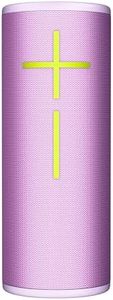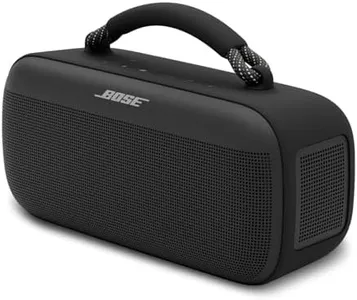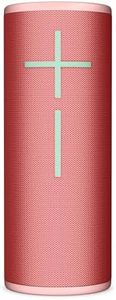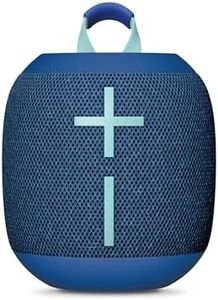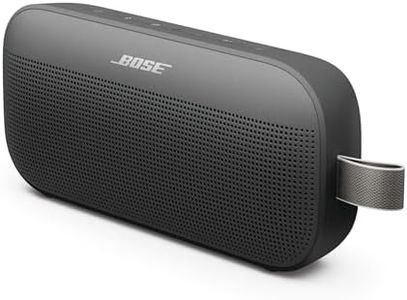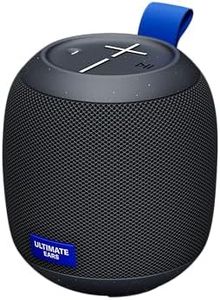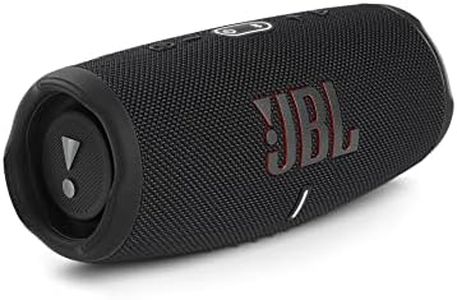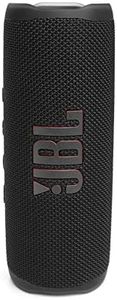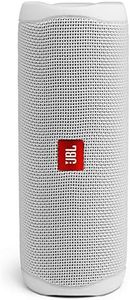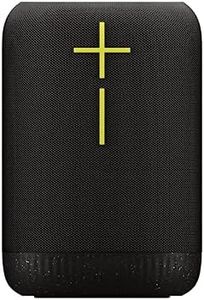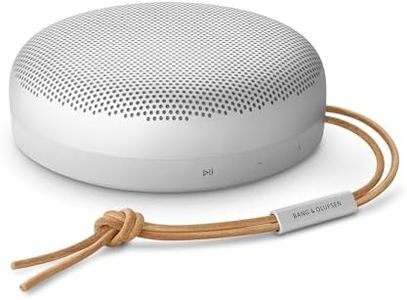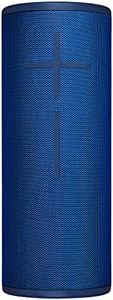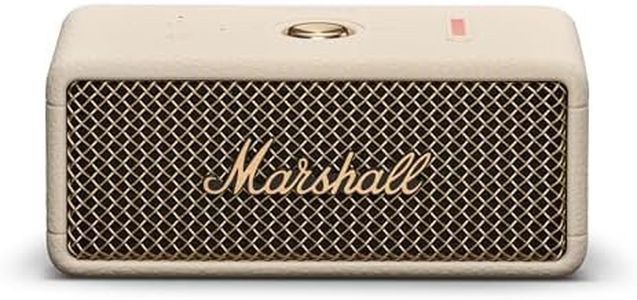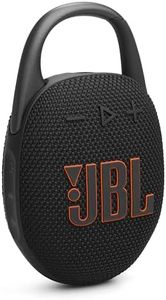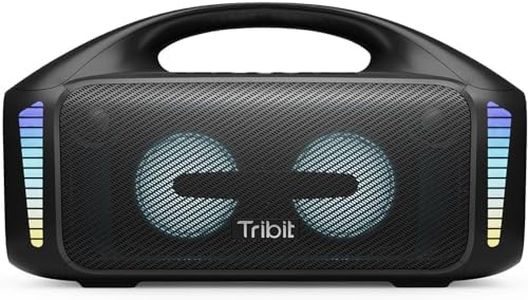We Use CookiesWe use cookies to enhance the security, performance,
functionality and for analytical and promotional activities. By continuing to browse this site you
are agreeing to our privacy policy
10 Best Small Waterproof Speakers
From leading brands and best sellers available on the web.By clicking on a link to a third party's website, log data is shared with that third party.
Buying Guide for the Best Small Waterproof Speakers
When choosing a small waterproof speaker, it's important to balance portability with sound quality and durability. These types of speakers are perfect for outdoor activities, travel, or use in wet environments like the bathroom or by the pool. Pay attention to the main features that impact your experience, such as water resistance, battery life, sound performance, and connectivity options. By focusing on what matters most for your personal use, you'll be able to find a speaker that fits your lifestyle and ensures your music goes wherever you do.Waterproof Rating (IP Rating)The waterproof rating, often listed as an IP (Ingress Protection) rating like IPX5 or IP67, tells you how well the speaker can handle water and dust. This rating is important because it shows whether the speaker can survive splashes, rain, or being fully submerged in water. Lower ratings like IPX4 mean it's splash-resistant (fine for light rain), while higher ratings like IP67 mean it can be submerged in water for a short time. If you plan to use your speaker near water or outdoors in unpredictable weather, choose a higher IP rating for better protection.
Battery LifeBattery life tells you how long the speaker will play music before it needs to be recharged. This is important if you want to use the speaker for long periods, such as during a day at the beach or hiking trip. Shorter battery life (up to 5 hours) might be fine for quick uses, medium range (6-10 hours) covers most outings, and longer battery life (over 10 hours) is best if you're away from charging points. Pick a battery life that matches your typical usage time to avoid interruptions.
Sound QualitySound quality covers how clear, loud, and balanced the speaker’s audio is. While small speakers might not have deep bass or super high volume, you can still find good sound for their size. Some focus on clarity for podcasts and vocals, while others try to boost bass for music. If you mostly listen to voice or podcasts, clear midrange is key. For music lovers, aim for a balanced sound with some bass, even if it's less powerful than bigger speakers.
Size and PortabilitySize and portability refer to how easy it is to carry the speaker around. Smaller, lightweight models are easy to toss in a bag or even clip to your backpack, perfect for travel or active use. Slightly bigger speakers may offer better sound, but can be less convenient to carry. Think about how you plan to use the speaker—go for ultra-portable if it’s for quick trips or on-the-go, or choose a still-compact but slightly bigger option if audio quality is your main goal but you don’t mind a little extra weight.
ConnectivityConnectivity is about how you connect your devices to the speaker, usually with Bluetooth or, sometimes, an audio cable. Most people use Bluetooth, but there are differences: some speakers connect faster or work over longer distances, while others let you pair with more than one device at once. Basic Bluetooth works for one device and a short range (about 10 meters), while newer versions (like Bluetooth 5.0) offer more range and stability. If you want hands-free calling or voice assistant access, look for extra connectivity features.
Durability and Build QualityDurability and build quality reflect how well a speaker can handle bumps, drops, or rough treatment. This is important if you'll be using the speaker outdoors, traveling frequently, or if you’re just a little clumsy. Some speakers are designed to withstand drops or have rubberized exteriors for extra protection. If you need a tough, reliable speaker, look for those advertised as shockproof or rugged, especially if it's going to see heavy use or be exposed to the elements.
